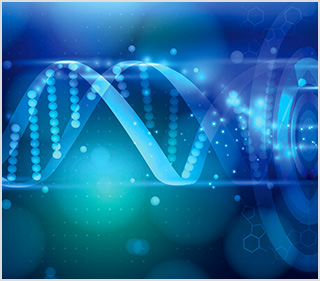Targeting Acute Myeloid Leukemia
Enasidenib is the second molecularly targeted therapeutic approved by the FDA for treating AML in recent months.

The U.S. Food and Drug Administration (FDA) recently
approved the molecularly targeted therapeutic enasidenib (Idhifa) for treating certain patients with
acute myeloid leukemia (AML). They also approved a companion diagnostic test to identify those patients eligible to receive it – adults whose AML is progressing despite treatment and that harbors certain mutations in the IDH2 gene.
AML is the most commonly diagnosed form of leukemia in the United States,
according to National Cancer Institute statistics. In 2017, 21,380 new cases of AML are expected to be diagnosed. It is also the form of leukemia that carries the worst prognosis; just 26.9 percent of patients live 5 or more years after diagnosis.
About 12 percent of AML cases are characterized by the presence of mutations in the IDH2 gene.
Research has shown that IDH2 mutations can lead to the generation of a mutant IDH2 protein that causes the accumulation of a molecule called 2-hydroxyglutarate, which can cause AML by altering the epigenome of normal healthy bone marrow cells in a way that prevents them from differentiating, or maturing.
Thus, researchers set out to investigate whether blocking mutant IDH2 protein might provide a new approach to treating patients with IDH2 mutation-positive AML.
Enasidenib is the first inhibitor of mutant IDH2 protein to be approved by the FDA. During development it was known as AG-221, and the research underpinning its discovery and characterization were published recently in the AACR journal Cancer Discovery.
Early results from the phase 1/2 clinical trial that led to the approval of enasidenib were presented during the AACR Annual Meeting 2014. At that time, six of seven evaluable patients had objective responses, including three who had complete remission. According to the FDA statement, the updated data show that 19 percent of 199 patients with relapsed or refractory AML who had IDH2 mutations had complete remission.
Enasidenib is the second molecularly targeted therapeutic approved for the treatment of AML in recent months, heralding substantive gains in precision medicine for patients with this devastating disease. The first molecularly targeted therapeutic for AML, midostaurin (Rydapt), was approved for treating the approximately 25 percent of patients whose leukemia harbors a mutation in the FLT3 gene.
In recent years, our understanding of the genetic mutations underpinning AML has increased dramatically. Thus, it is hoped that the approvals of midostaurin and enasidenib are just the start of precision medicine for AML.
The FDA approval was rendered on August 1, 2017.
